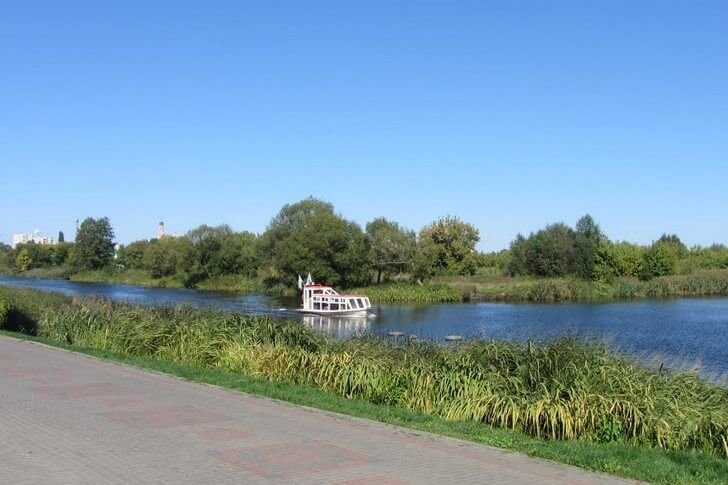Tambov is not the most popular tourist destination, mostly people come here on business trips, visit friends, or even turn out to be by chance. And it’s completely in vain – the city has a certain charm of true Russian provinciality, which is more characteristic of the 19th and early 20th centuries than of our dynamic time.
There are many beautiful cathedrals and city mansions of the past centuries in Tambov, without which it is impossible to imagine the look of any city in Central Russia. There is even a Catholic church here, which stands out from the rest of the buildings with pronounced Gothic features. Of the most interesting places, it is worth noting the Museum of Sin and the Museum of Medicine, a very characteristic monument in honor of the Tambov peasant and the building of the Drama Theater.
What to see and where to go in Tambov?
The most interesting and beautiful places for walking. Photos and a short description.
- Aseev's estate
- Communal street
- Gostiny Dvor
- Transfiguration Cathedral
- Kazan Monastery
- Ascension Monastery
- Church of the Exaltation of the Holy Cross
- Holy Trinity Church
- Lazarevsky temple
- Tambov Drama Theater
- Tambov Regional Museum of Local Lore
- Museum and Exhibition Center of the Tambov Region
- House-Museum of G.V. Chicherina
- Museum of the History of Medicine
- Sin Museum
- Tambov art gallery
- Tambov man
- Zoobotanical center
- Park of Culture and Leisure
- Embankment of the Tsna River
Aseev's estate
At present, it is a museum complex consisting of a house, a park and a fountain, in the past it was a mansion built at the beginning of the 20th century for the industrialist M. V. Aseev. The building was erected according to the project of the architect from Moscow L. N. Kekushev in the Art Nouveau, Classicism and Baroque styles. Since the 1920s, an orphanage and a sanatorium have been located on its territory. The estate was opened as a museum after restoration in 2014.
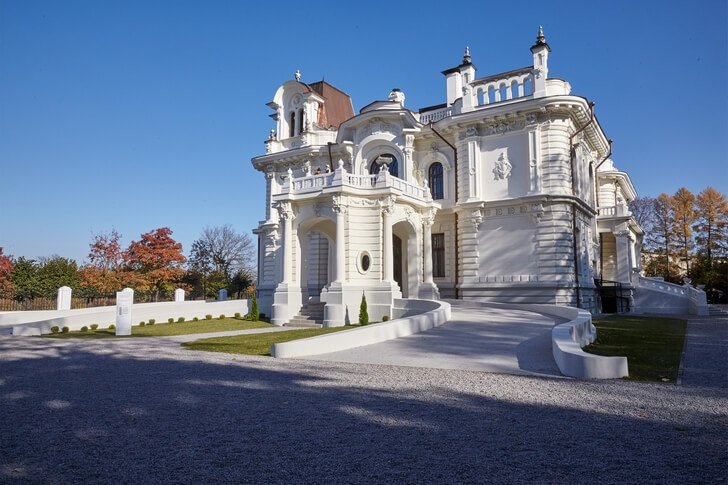
Communal street
One of the central streets of the city with a pedestrian zone, traditionally called "Tambov Arbat". Along the paved walking alley, there are stone merchant mansions of the 19th - early 20th centuries, forged lanterns, decorative flower beds and benches. Today, the former trading shops are modern shops and cafes. st. Communal is one of the most beautiful parts of Tambov.
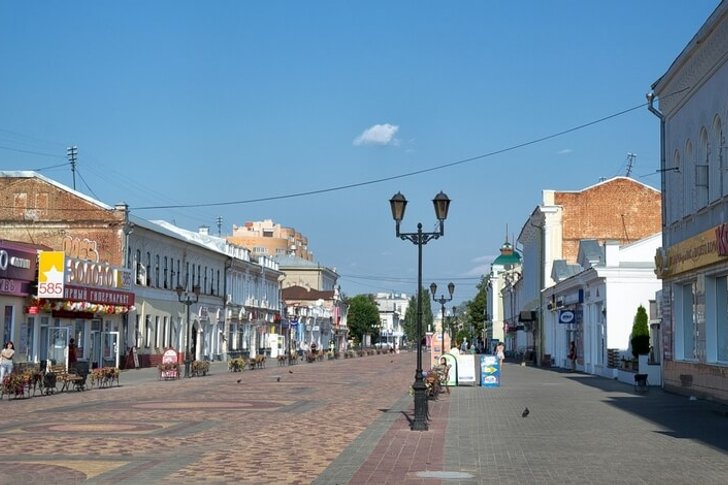
Gostiny Dvor
The Gostiny Dvor building was built in the first half of the 19th century with the money of local merchants. It is made in the manner of Russian classicism: there are rows of massive columns along the perimeter, the central entrance is built in the form of a portico. The last reconstruction of the complex was carried out in the 1980s, it was undertaken to increase the retail space. Today there is a shopping center in Gostiny Dvor.
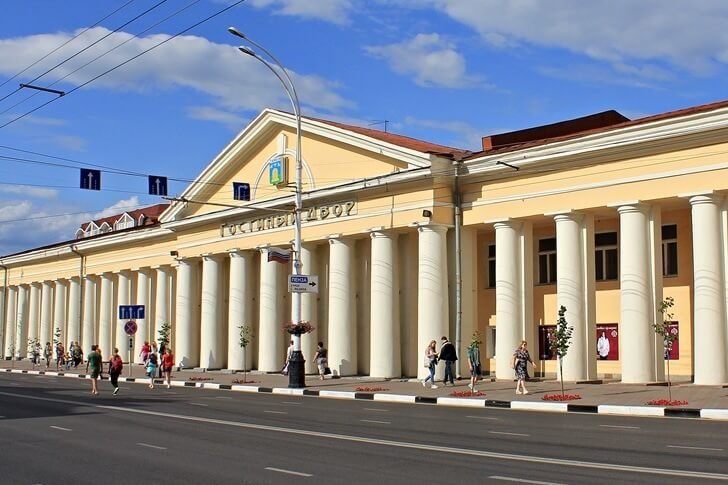
Transfiguration Cathedral
The oldest Orthodox church in the city, built at the end of the 18th century with donations from the Tambov merchant M. Borodin. The three-tiered 42-meter bell tower was added in 1817. At the beginning of the 20th century, the cathedral was considered one of the most beautiful in the region, but in the 1930s, after the closure, there was no trace of its former glory: the magnificent belfry was dismantled, the main building was given over to the local history museum. In the 1990s, the temple was returned to the Russian Orthodox Church, in the 2000s the bell tower was rebuilt.
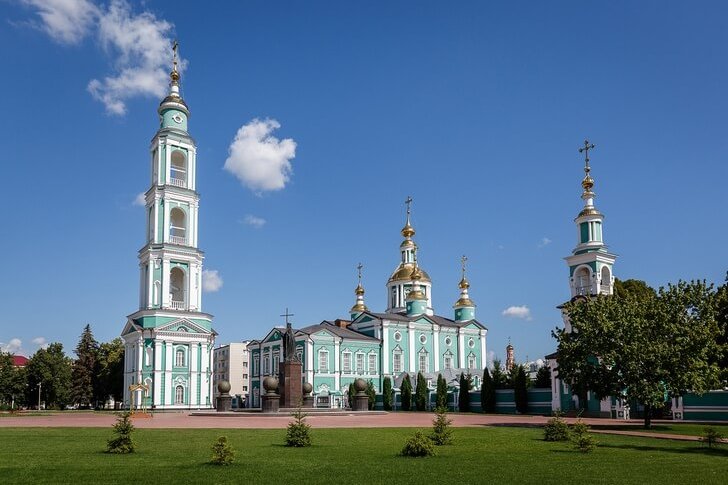
Kazan Monastery
The monastery was founded in the second half of the 17th century, but the complex of buildings acquired its modern architectural appearance only in the next century. The institution did not operate in the period 1920-90, on its territory there were branches of the GubChK and the NKVD. Of all the buildings of the monastery, one can distinguish the Church of the Kazan Icon of the Mother of God, erected in 1796 and painted in the “Griyzal” technique, which is uncharacteristic for Orthodox churches, as well as the church in the name of John the Baptist, built in 1831. The belfry deserves special attention - the highest in the Central Federal District (over 100 meters) and the second largest in Russia. It was built to replace the building demolished in Soviet times.
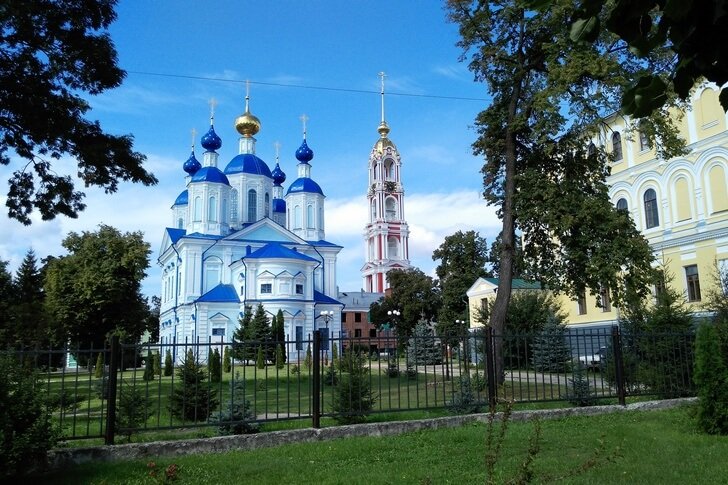
Ascension Monastery
Women's monastery, formed in the XVII century. Its bright and picturesque temples are considered the most beautiful in the Tambov region. You simply can’t take your eyes off the main Ascension Cathedral, from the side it resembles a fairy-tale tower. The building was built in the 2000s. Nearby are the older temples of the monastery - the Church of the Icon of the Sorrowful Mother of God of the XIX century and the Church of John of Kronstadt of the late 1990s.
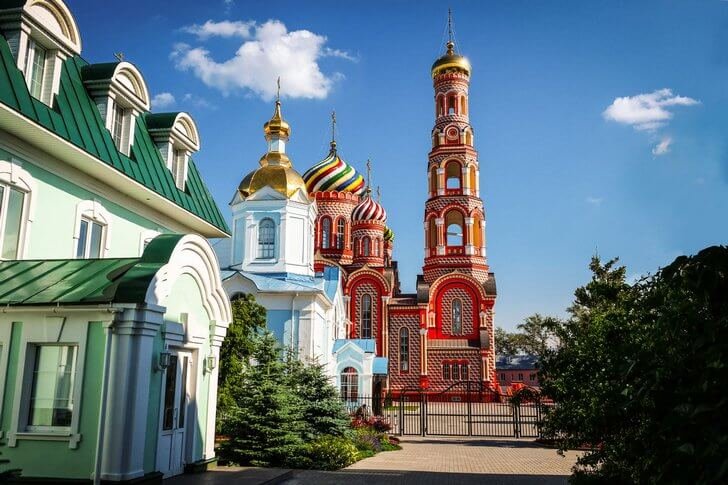
Church of the Exaltation of the Holy Cross
A Catholic church built for representatives of the Polish community (mainly consisting of rebels exiled to these places after the uprising of 1863), who lived in Tambov at the end of the 19th century. The church was built at the beginning of the 20th century in the Gothic style. The main material of the facade is red brick. The church had a library and a charitable society. After the restoration of the 1990s, services were resumed in the church at the expense of Poland.
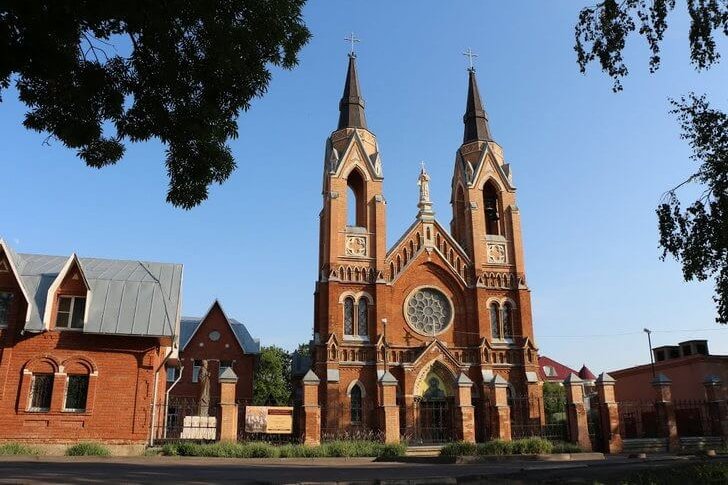
Holy Trinity Church
Until the 18th century, a wooden church stood on the site of the Trinity Church. The first stone building was erected in 1771, but it was destroyed by fire. In the middle of the 19th century, a second stone church was built, which was dismantled to the ground in the 1930s. The building was restored only in the 2000s in its historical form with minor differences. The new building turned out majestic and graceful.
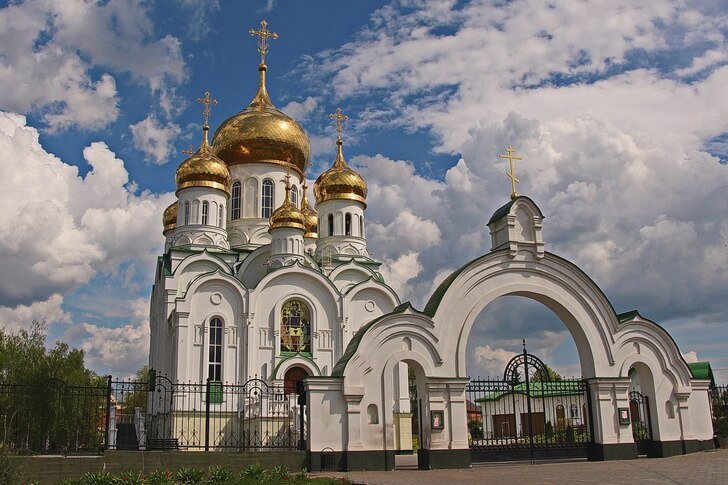
Lazarevsky temple
The history of the temple began with the construction of a shelter for the sick and orphans. The institution was named after St. Lazarus, since it is he who is considered the patron saint of the orphans and the poor. In one of the shelter premises, a house church was opened, which became the prototype of the modern temple. In Soviet times, all the buildings were used for other purposes, in the 1990s part of the territory was returned to the Russian Orthodox Church and the temple started working again.
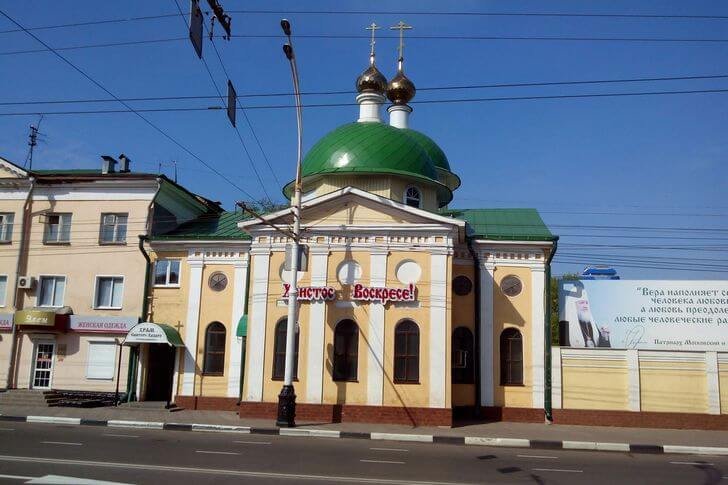
Tambov Drama Theater
The Tambov drama stage was founded in the 18th century by G. R. Derzhavin, a well-known poet and public figure, while serving as governor. The very first performances were held in his house, later a separate building was erected. The theater actively developed in the 19th century, continuing this trend in the Soviet era. Today the stage is located in the picturesque mansion of the Noble Assembly, built in 1897.
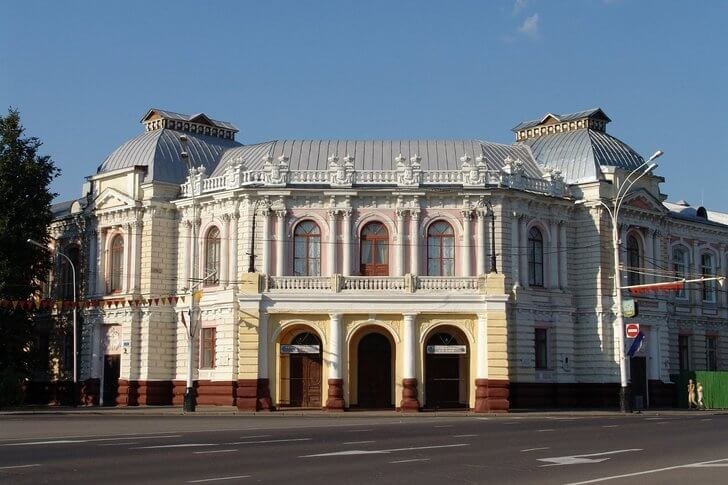
Tambov Regional Museum of Local Lore
The museum was founded in 1879. First, the collection was located in the building of the public library, then moved to the house of the Society for Public Readings. For the third time, the expositions moved to the Transfiguration Cathedral, where they were located until 1994. The museum's funds were replenished by private collections, archaeological finds, and exhibits collected by the Academic Archival Commission of Tambov.
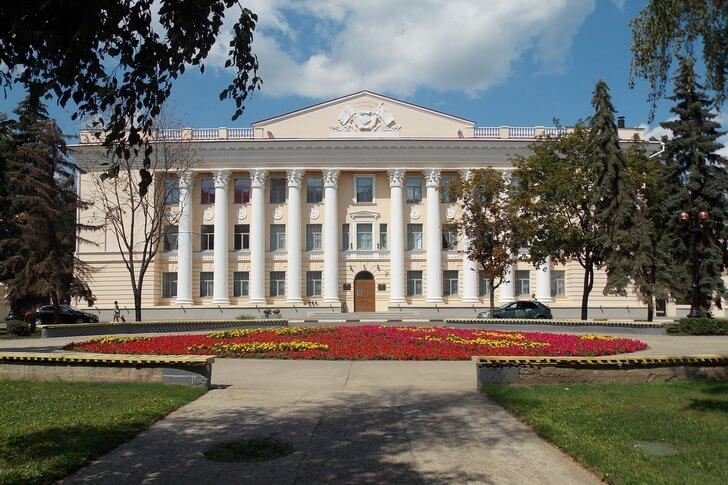
Museum and Exhibition Center of the Tambov Region
The complex was opened in 2010 on the territory of the former merchant's mansion, which belonged to M. L. Shorsov, as a branch of the Tambov Regional Museum of Local Lore. The area of the center is used to organize temporary exhibitions, as well as to demonstrate collections relating to the new and recent history of the Tambov region. The staff of the complex acts as an organizer of various patriotic events.
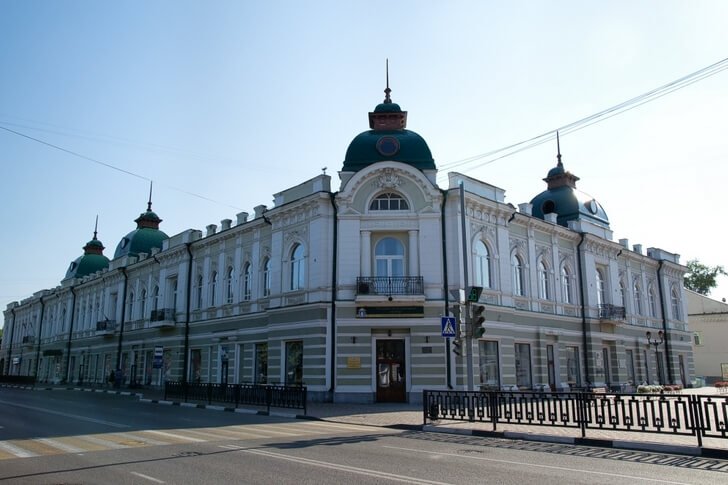
House-Museum of G.V. Chicherina
The museum opened in 1987 in a wooden house, where in the period from 1877 to 1886. the Chicherin family lived, from where came the diplomat and talented statesman G. V. Chicherin. The collection has more than 3 thousand exhibits and consists of personal items, furniture, home furnishings, photographs, documents, letters and books. Inside, the furnishings and atmosphere of the 19th century are recreated.
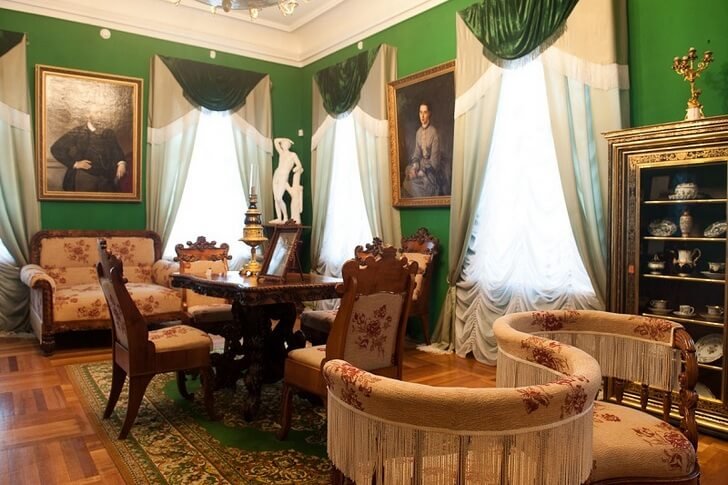
Museum of the History of Medicine
The museum began operating in the 1970s at the Tambov Regional Center for Medical Prevention on the initiative of city hospital doctors. The museum's collection is of scientific interest and consists of medical works, printed publications, manuscripts, photographs, documents and rare thematic literature (some books date back to the 18th century). There is also an exposition consisting of awards, a collection of medical equipment and medicines.
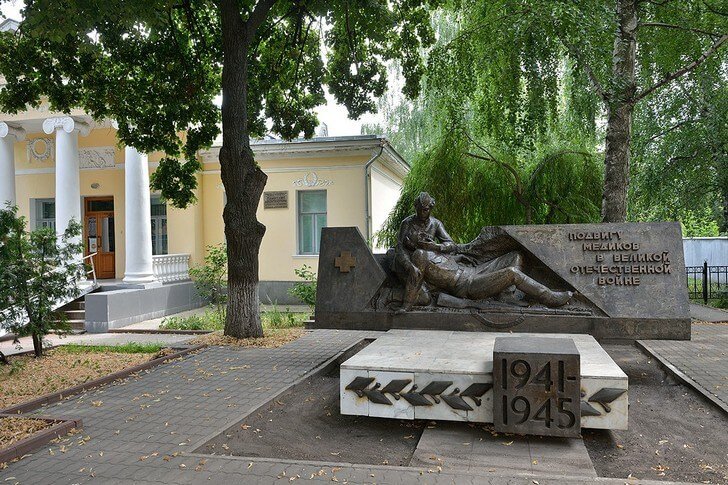
Sin Museum
Anatomical Museum at Tambov State University, showing various human pathologies. The collection was created by a pathologist and was originally located in one of the rooms of the mortuary. The exhibits are preserved embryos extracted from the body of women who are addicted to bad habits and sick women, as well as parts of the human body with various deformities that cannot be looked at without a shudder.
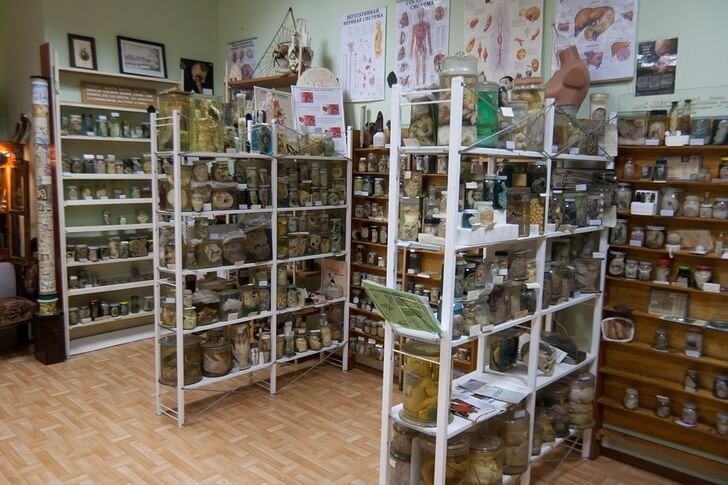
Tambov art gallery
The Art Museum is located on the territory of a historical building of the late 19th century - the Naryshkin Reading Room. The collection contains more than 5 thousand copies, only a few hundred are exhibited in the halls. The gallery was created in 1890 thanks to the initiative of the Imperial Chief Chamberlain E. D. Naryshkin. Initially, the institution combined a library and an art department, the book collection moved to another place already in the 1980s.
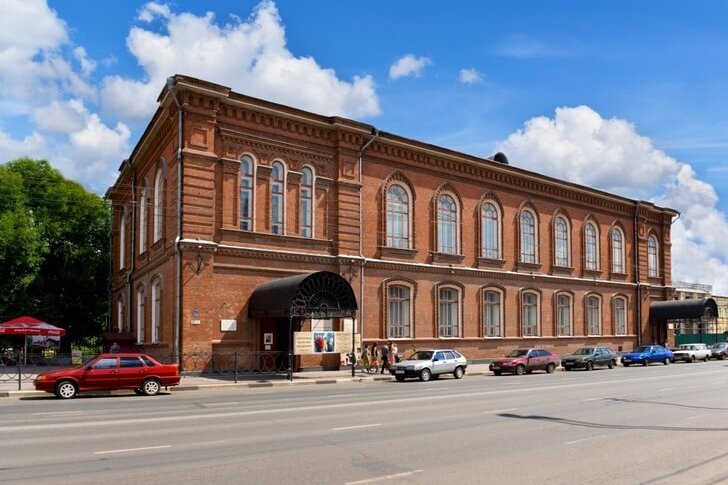
"Tambov man"
The sculpture was installed in 2007 on the embankment in the center of a small park. The monument depicts a poor and downtrodden Tambov peasant of the early 20th century - a hard worker, a sufferer, a keeper of the faith and a representative of the most numerous and vulnerable segment of society. The man longingly looks towards the Pokrovsky Cathedral and holds a pectoral cross in his hand, leaning on a plow.
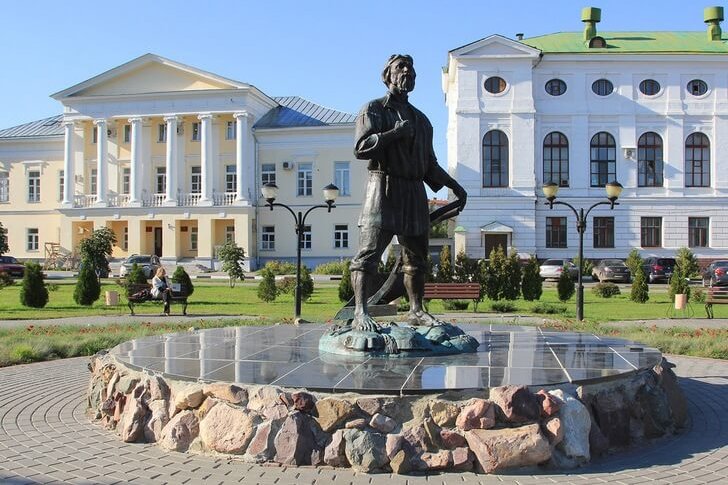
Zoobotanical center
The zoo was opened in 2005 on the basis of TSU. First, wild boars, camels and ostriches settled in it, later exotic insects, monkeys, reptiles and birds arrived. First of all, the zoobotanical center is a platform for scientific research conducted by university students, the exposition function plays a secondary role, but all the same, visitors are always welcome here.

Park of Culture and Leisure
Central city park with numerous attractions, playgrounds, cafes. Its history spans about 180 years. In the 1930s, at the initiative of the governor, a public garden was created here. A brass band played in the park, fireworks were arranged in the evenings, and a skating rink worked in winter. After the Revolution and redevelopment, a fountain and plaster sculptures appeared. Today, the territory of the park has significantly decreased due to the construction of the mall.
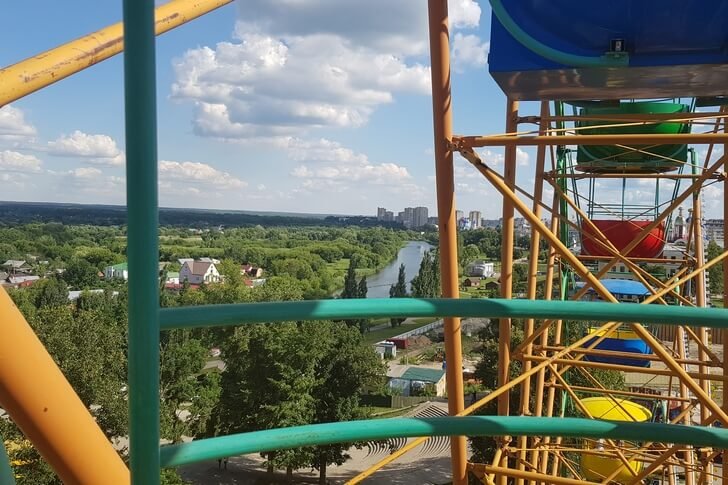
Embankment of the Tsna River
The city embankment is one of the most picturesque places in the city. It is equipped for walking, relaxing and contemplating the banks of the Tsna River covered with greenery. Walking along the water, you can even forget that you are in the city - in some places, dense thickets obscure buildings and roads from view. The length of the embankment is about 2.5 km, it consists of two levels: the first runs right by the river, the second is higher.
